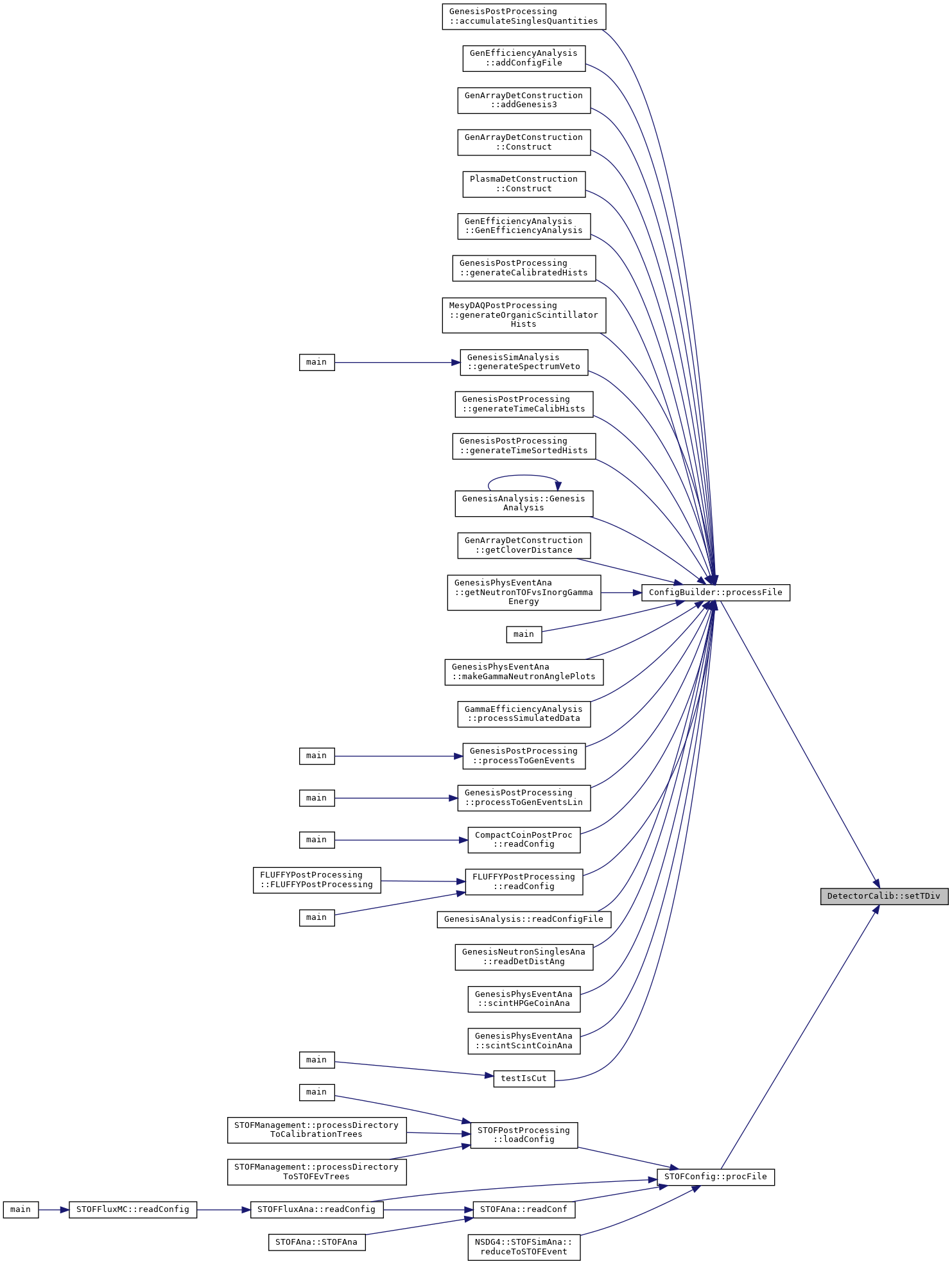#include <CalibrationClasses.h>

Public Member Functions | |
| DetectorCalib () | |
| virtual double | applyCalib (double a_value) const =0 |
| virtual DetectorCalib * | clone ()=0 |
| virtual double | invertCalib (double a_value) const |
| virtual std::ostream & | print (std::ostream &a_stream=std::cout) const |
| prints nothing by default More... | |
| CalibType | getCalibType () |
| void | setTime (uint32_t a_t) |
| sets the experiment time during the processing in time since epoch More... | |
| void | setTDiv (int a_timeDiv) |
| sets the divisor for which to consider the given time More... | |
| virtual | ~DetectorCalib () |
Protected Attributes | |
| CalibType | m_type |
| uint32_t | m_t |
| int | m_tDiv |
Constructor & Destructor Documentation
◆ DetectorCalib()
| DetectorCalib::DetectorCalib | ( | ) |
◆ ~DetectorCalib()
|
virtual |
Member Function Documentation
◆ applyCalib()
|
pure virtual |
pure vitural function to return tha calibrated value which forces implementation by inheriting classes
Implemented in TDepPolyCalib, TDepOffsetCalib, TDepLinearCalib, PolyCalib, QuadraticCalib, LinearCalib, OffsetCalib, and ScalarCalib.

◆ clone()
|
pure virtual |
this is required to implement deep copies of derived classes and needs to be implemented for any inheriting class
Implemented in TDepPolyCalib, TDepOffsetCalib, TDepLinearCalib, PolyCalib, QuadraticCalib, LinearCalib, OffsetCalib, and ScalarCalib.

◆ getCalibType()
| CalibType DetectorCalib::getCalibType | ( | ) |
returns what type of implimentation has occured for runtime polymorphism
◆ invertCalib()
|
virtual |
allows for the inverse mapping of a given calibration if needed for applying cuts. implementation isn't enforced by default so the base class implimentation will return -10000;
Reimplemented in LinearCalib.
◆ print()
|
virtual |
prints nothing by default
Reimplemented in TDepPolyCalib, TDepOffsetCalib, TDepLinearCalib, PolyCalib, QuadraticCalib, LinearCalib, and OffsetCalib.

◆ setTDiv()
| void DetectorCalib::setTDiv | ( | int | a_timeDiv | ) |
sets the divisor for which to consider the given time

◆ setTime()
| void DetectorCalib::setTime | ( | uint32_t | a_t | ) |
sets the experiment time during the processing in time since epoch

Member Data Documentation
◆ m_t
|
protected |
◆ m_tDiv
|
protected |
◆ m_type
|
protected |
The documentation for this class was generated from the following files:
- BasicSupport/include/CalibrationClasses.h
- BasicSupport/src/CalibrationClasses.cpp